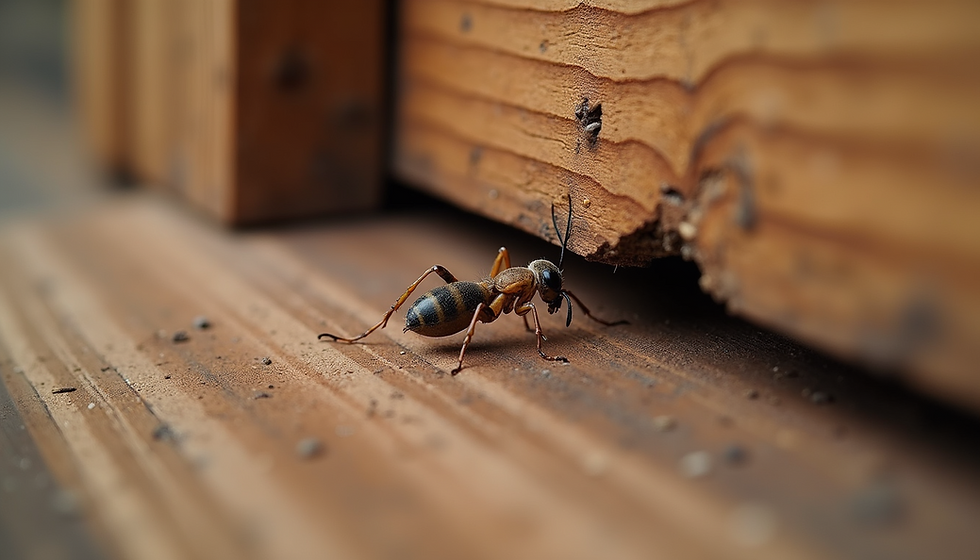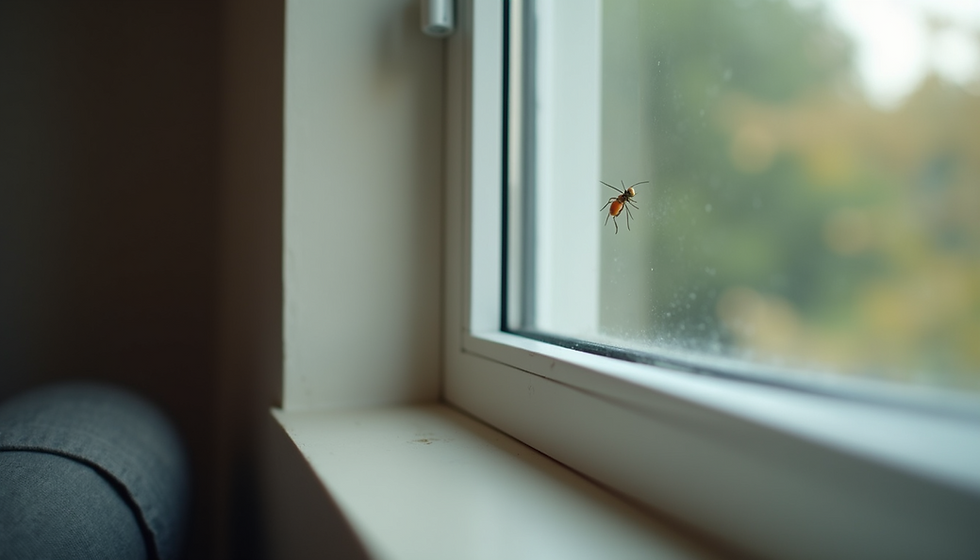Why Regular Termite Inspections Are Essential
- Gorilla Pest

- Aug 18
- 3 min read
Termites are silent destroyers that can cause significant damage to your property before you even realize they are there. These tiny insects feed on wood and other cellulose materials, compromising the structural integrity of your home. Regular termite inspection is crucial to catch infestations early and protect your investment. In this article, we will explore why scheduling routine termite inspections is a smart move for any homeowner.
The Importance of Termite Inspection for Early Detection
Termites often go unnoticed because they work behind walls, under floors, and in hidden spaces. Without regular inspections, an infestation can grow unchecked, leading to costly repairs. Early detection through termite inspection allows you to:
Identify termite activity before it spreads
Prevent extensive damage to wooden structures
Save money on repairs and treatments
Maintain the safety and value of your home
Professional inspectors use specialized tools and techniques to find signs of termites, such as mud tubes, damaged wood, and discarded wings. Catching these signs early can make all the difference in controlling the problem.

Close-up view of termite damage on wooden beam
What Happens During a Termite Inspection?
A thorough termite inspection involves a detailed examination of your property, both inside and out. Inspectors look for evidence of termite presence and conditions that might attract them. Key areas checked include:
Foundation and crawl spaces
Wooden beams and framing
Attics and roof spaces
Exterior walls and siding
Areas with moisture or wood-to-soil contact
The inspector will also check for signs of other wood-destroying insects. After the inspection, you receive a detailed report outlining any findings and recommended treatments or preventive measures.
Scheduling regular termite inspections is especially important in regions prone to termite activity. For example, if you live near Waco, Texas, you can rely on Termite inspection Waco services to keep your home safe.

Eye-level view of termite inspector examining wooden floor
How do house inspectors check for termites?
House inspectors use a combination of visual checks and tools to detect termites. Here’s how they typically proceed:
Visual Inspection: Inspectors look for telltale signs such as mud tubes, damaged wood, and termite droppings.
Probing Wood: Using a screwdriver or similar tool, they gently probe wood surfaces to check for hollow spots or soft areas.
Moisture Meters: These devices measure moisture levels in wood, as termites thrive in damp environments.
Thermal Imaging Cameras: These cameras detect heat patterns that may indicate termite nests inside walls.
Borescope Cameras: Small cameras inserted into wall cavities help inspectors see hidden termite activity.
This thorough approach ensures that even hidden infestations are identified early, allowing for prompt treatment.

High angle view of termite inspection tools on wooden surface
Benefits of Regular Termite Inspections
Regular termite inspections offer several benefits beyond just early detection:
Peace of Mind: Knowing your home is termite-free reduces stress and worry.
Protects Property Value: Termite damage can significantly reduce your home's market value.
Saves Money: Early treatment is less expensive than repairing extensive damage.
Improves Safety: Structural damage from termites can pose safety risks to occupants.
Supports Insurance Claims: Some insurance policies require proof of regular inspections for termite damage coverage.
By investing in routine inspections, you are taking proactive steps to safeguard your home and finances.
Tips for Homeowners to Prevent Termite Infestations
In addition to scheduling professional inspections, homeowners can take practical steps to reduce the risk of termite infestations:
Reduce Moisture: Fix leaks and ensure proper drainage around your home.
Keep Wood Away from Soil: Avoid direct contact between wooden structures and soil.
Store Firewood Properly: Keep firewood away from your home and off the ground.
Seal Cracks and Holes: Prevent termites from entering through gaps in foundations or walls.
Maintain Ventilation: Proper airflow reduces humidity in crawl spaces and attics.
Combining these preventive measures with regular termite inspections creates a strong defense against termite damage.
When to Schedule Your Next Termite Inspection
Experts recommend having a termite inspection at least once a year, especially if you live in an area with high termite activity. Additionally, schedule an inspection if you:
Notice signs of termite damage
Are buying or selling a home
Have had previous termite problems
Experience recent flooding or water damage
Regular inspections ensure that any termite issues are caught early and managed effectively.
Taking the time to schedule regular termite inspections is a wise investment in your home’s future. By detecting problems early and maintaining preventive measures, you can protect your property from costly damage and enjoy peace of mind. Don’t wait until it’s too late - make termite inspection a routine part of your home maintenance plan.


